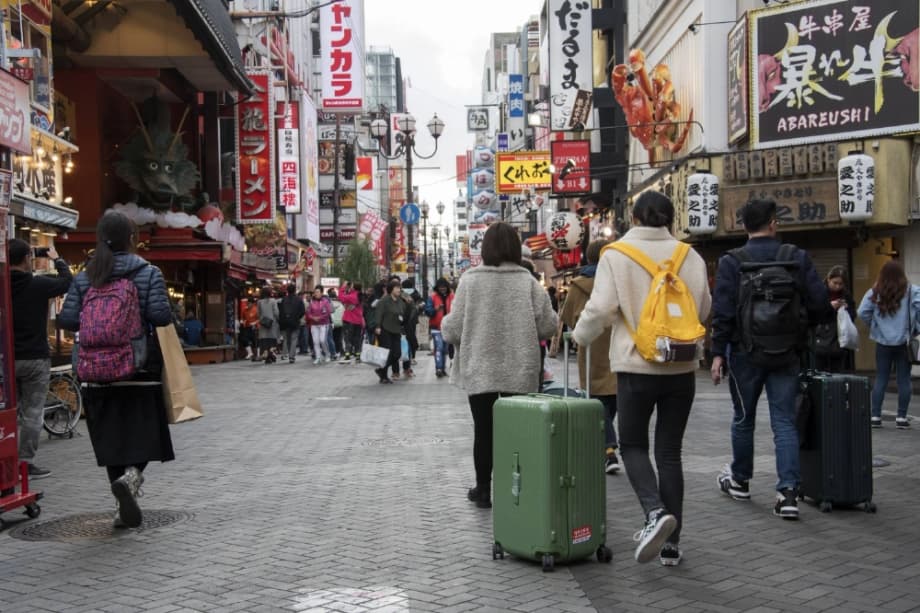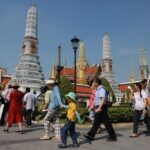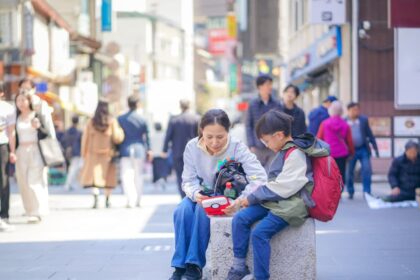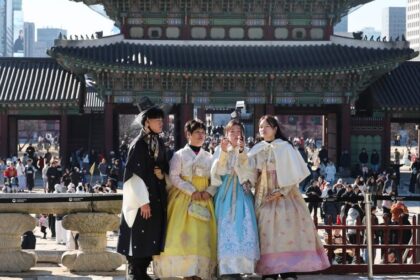Why Osaka is pausing special zone minpaku applications
Osaka Prefectural Government and several municipalities have asked the central government to allow a halt to new applications for special zone private lodgings, known in Japan as minpaku, starting on May 30, 2026. The move follows a sustained rise in neighborhood complaints about late night noise, misuse of garbage stations, and bookings that do not meet legal conditions. The planned suspension would apply across the city of Osaka and 29 municipalities under the prefecture. Two large core cities, Yao and Neyagawa, would join once they receive central approval. Officials describe the step as a temporary pause that gives local authorities time to strengthen guidance and supervision, not a permanent shutdown of home sharing.
- Why Osaka is pausing special zone minpaku applications
- What is Tokku minpaku and how is it different
- What residents are reporting
- How the suspension will work and the timeline
- Impact on tourism and the 2025 Osaka Kansai Expo
- What operators and the hotel industry say
- Enforcement, supervision, and potential reforms
- What travelers should know before booking
- Key Points
Special zone minpaku operate under deregulation created to ease a hotel shortage as inbound tourism surged over the past decade. Unlike standard private lodgings that can operate only up to 180 days a year, special zone properties can welcome guests all year if they meet conditions such as a minimum stay of two nights and three days. Osaka became the heart of this program. City data show more than 90 percent of these properties sit inside Osaka City, creating a dense cluster of listings in residential areas frequented by visitors.
Local leaders now seek central permission to pause new approvals while they tighten enforcement and improve responses to complaints. They will decide later whether to restart applications after national reforms give cities and towns stronger authority to oversee operators. The plan signals a recalibration of home sharing in Japan’s third largest city during a peak year for tourism.
What is Tokku minpaku and how is it different
Japan regulates short term rentals under three main frameworks. Hotels and inns operate under the Hotel Business Law, which requires facilities like a front desk. Regular private lodgings operate under the Private Lodging Business Law, which caps operations at up to 180 days per year. Special zone private lodgings, often called Tokku minpaku, sit inside National Strategic Special Zones where some hotel rules are relaxed to boost accommodation supply.
Rules in the special zone program
- Guests must stay at least two nights and three days.
- Rooms must be 25 square meters or larger.
- Foreign language signage and clear house rules are required.
- Front desk obligations that apply to hotels are relaxed, although operators must be reachable and are responsible for managing guests and complaints.
Why Osaka hosts so many special zone properties
Osaka City became the largest hub for special zone minpaku as tourism grew and hotel supply lagged. As of July, there were roughly 7,100 special zone minpaku nationwide across eight jurisdictions, and about 6,700 of them were in Osaka City. Demand was lifted by sustained inbound travel and preparations for the 2025 Osaka Kansai Expo. Applications surged, with more than 200 filed per month for five consecutive months through July, and more than 1,000 still awaiting processing.
What residents are reporting
Neighborhood concerns have focused on behavior and rule violations. In the last fiscal year, Osaka City recorded 399 complaints tied to special zone minpaku. Of those, 196 involved one night stays, which are generally prohibited. Another 103 involved improper use of residential garbage collection points, and 87 cited late night noise from rolling suitcases and comings and goings.
Residents also say problems can be hard to resolve quickly because many properties have no staff on site and contact lines are not always responsive. Some neighbors report language barriers when trying to reach operators or guests. City officials say increased inspections and clearer guidance will target recurring issues, especially minimum stay violations and inappropriate waste disposal.
How the suspension will work and the timeline
The proposal calls for stopping new applications for special zone minpaku from May 30, 2026. The suspension would cover the city of Osaka and 29 other municipalities in the prefecture. Two core cities, Yao and Neyagawa, will stop accepting new applications after formal approval by the central government. Under national rules, a local government must present a plan to a meeting on National Strategic Special Zones and obtain approval from the prime minister to change the status of a special zone program.
Support within the prefecture is broad. A prefectural survey found that 27 of 34 municipalities, including cities such as Ibaraki and Fujiidera, backed halting applications. Some, like Kadoma and Moriguchi, signaled they would narrow eligible areas for such lodgings. Others, including Izumisano, Kaizuka, and Habikino, indicated no change for now. The city is also dealing with a large backlog of applications, which can take about two months to process, a reflection of the rush ahead of major events and talk of stricter oversight.
Officials say there will be a grace period for operators already well into the approval process. Existing certified properties can continue to operate, though supervision will tighten. Osaka City plans to expand inspections, issue more administrative guidance to problematic facilities, and revoke certifications in serious or persistent cases. The city is preparing detailed cancellation guidelines and is setting up a dedicated team to investigate all special zone properties.
Impact on tourism and the 2025 Osaka Kansai Expo
Special zone minpaku were designed to add rooms quickly as visitor numbers climbed. Osaka remains one of Japan’s most popular destinations, and the 2025 Osaka Kansai Expo is expected to draw many domestic and international travelers. A pause on new special zone approvals limits the pipeline of new homes entering the market, but it does not shut down existing listings. Hotels, ryokan inns, and regular private lodgings under the Private Lodging Business Law will continue to serve visitors.
Travel demand will test whether the current mix of hotels and existing minpaku can absorb crowds without putting pressure on neighborhoods. The suspension gives local officials room to refine rules that balance hospitality and livability. With more consistent enforcement, the city aims to reduce late night disruptions and garbage issues while keeping legitimate operators active under clearer expectations.
What operators and the hotel industry say
Hospitality groups have pressed for stronger oversight. In Osaka, ryokan and hotel representatives have argued that repeated breaches by a minority of short term rentals hurt neighborhoods and undercut compliant businesses. Calls to review, and in some cases to abolish, special zone minpaku accelerated through the summer.
Operators, for their part, warn that abrupt policy shifts can strain businesses that rely on loans and have invested in renovations, furniture, and management systems. Many support action against problematic hosts but seek transparent rules and reasonable grace periods. Some also worry that squeezing compliant players may hand an advantage to unlicensed short term rentals, known as yami minpaku, which avoid taxes and inspections. City officials say stronger enforcement is meant to protect legal operators and limit unfair competition from illegal listings.
Enforcement, supervision, and potential reforms
During the suspension, Osaka City plans expanded on site inspections, faster responses to complaints, and a clear path for penalties. Tools include administrative guidance for first time problems and permit revocation for repeated or serious violations. Priority targets include properties that accept one night stays, fail to provide clear house rules in multiple languages, or ignore repeated neighborhood complaints about trash and noise.
Prefectural and municipal leaders say they will consider resuming applications after national reforms reinforce local oversight powers. That could include simpler cancellation procedures and quicker coordination with police and fire departments when safety or nuisance issues persist. The goal is to set expectations that are easy for visitors to follow, practical for operators to implement, and enforceable by local governments.
What travelers should know before booking
Travelers booking stays in Osaka can continue to use existing legal listings, but they should expect more consistent enforcement of house rules. A smooth stay depends on being a good neighbor in residential areas. These tips can help.
- Check that the listing meets the minimum stay of two nights and three days if it is a special zone minpaku.
- Look for a posting of house rules and contact details in languages you understand. Save those details in your phone.
- Plan for waste disposal. Many neighborhoods require sorting trash and using specific collection points and times.
- Keep suitcase movements and hallway conversations quiet late at night and early in the morning.
- Confirm that the property is registered. Legal hosts display a registration number or certification in the listing and on site.
- If you need help, contact the host promptly. If problems persist, follow the instructions in the listing for contacting the management company or local authorities.
Key Points
- Osaka seeks to halt new special zone minpaku applications from May 30, 2026.
- The pause covers Osaka City and 29 municipalities. Yao and Neyagawa will join after central approval.
- Residents filed 399 complaints last fiscal year, including one night stays, trash issues, and late night noise.
- Special zone minpaku can operate year round with a two night minimum stay, foreign language signage, and rooms of at least 25 square meters.
- Osaka hosts the vast majority of special zone properties, with about 6,700 of roughly 7,100 nationwide as of July.
- Existing certified properties can continue to operate. A grace period is planned for applicants already preparing to open.
- Osaka City will expand inspections, issue guidance, and revoke certifications for persistent violators.
- Local leaders may consider resuming applications after national reforms strengthen local oversight powers.
- The suspension aims to balance tourism growth with livability ahead of the 2025 Osaka Kansai Expo.












